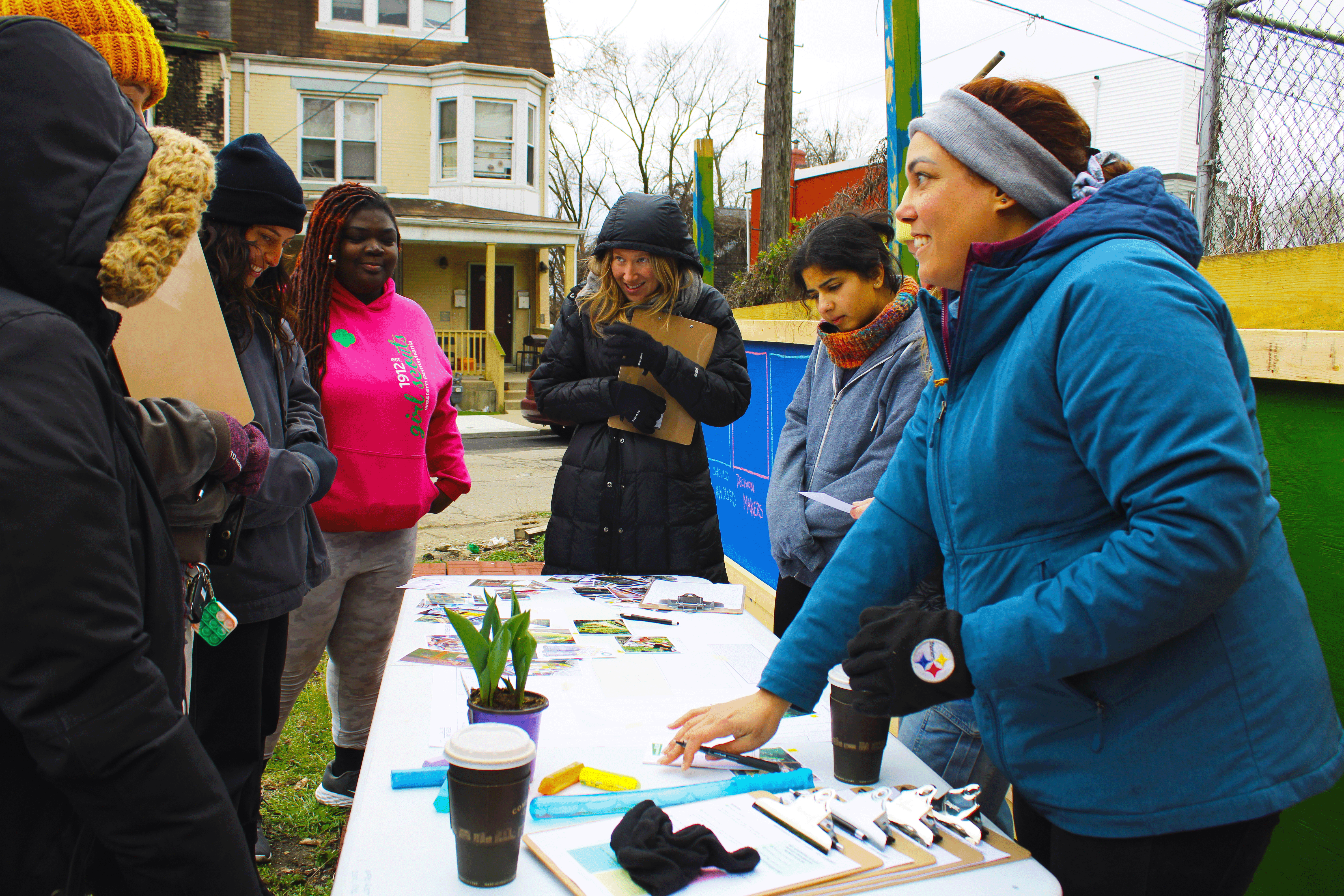“He and his team were here to listen to several community development organizations—including the Hill CDC and Neighborhood Allies—about their visions, and to evaluate how the bank’s investments can yield the greatest benefit.”
By: Christian Morrow | Pittsburgh Courier | February 16, 2017 | Read the full article here

16 BILLION MAN—KeyBank Executive VP Bruce Murphy tells the New Pittsburgh Courier about the bank’s commitment to investing heavily in low-and moderate-income communities. (Photo by J.L. Martello)
Bruce Murphy, a former football star at Pitt who later worked as a banking executive for Mellon before leaving to seek other opportunities, returned last week in his new position as KeyBank’s Executive Vice President of Corporate Responsibility—responsible for seeing how the bank distributes $16.5 billion in community benefits over the next five years.
“This is more than just (complying with) the Community Reinvestment Act,” he told the New Pittsburgh Courier editorial board. “It is a reflection of our company. We believe in investing in the communities we serve, and making places better than we found them, making them sustainable.”
Since KeyBank announced its 2017 Community Benefits Plan, Murphy said he regularly gets calls at his Cleveland, Ohio office asking, “Are you the guy with the $16 billion?” People in Pittsburgh were asking too, but the bank isn’t at the investment stage yet, he said.
He and his team were here to listen to several community development organizations—including the Hill CDC and Neighborhood Allies—about their visions, and to evaluate how the bank’s investments can yield the greatest benefit.
“We’re here to use data to talk to people in the community, about people in the community, to do something in the community that makes sense,” he said, adding that track records make a difference.
“Did I do what I said? Did it happen the way I said it would,” Murphy said. “It’s about not overreaching with a good idea—is it of scale? Some organizations don’t have the capacity to deliver what they want to.”
Murphy said the $16 billion will be broken down into four areas: $5 billion in new mortgage loans targeting low- and moderate-income individuals and communities, $2.5 billion in small business/farm loans, again to low- and moderate income communities, $8.8 billion in community development lending and investment, and $175 million in philanthropy—which includes education, workforce and living-wage job development, providing technical assistance and education to businesses and homeowners, and service—supporting employee-driven volunteer efforts.
Hill CDC President and CEO Marimba Milliones said she was pleased to meet with Murphy and his team.
“I am very encouraged to see that KeyBank brought such a large contingent to meet with the community and get an understanding of the area,” she said.
“We had an extensive conversation about the goals of our master plan. I remain consistent in my belief that the Hill is a strategic site for development investment—with the Downtown/Oakland corridor as a multiplier. Hopefully, they took that away from our discussions.”
Murphy said the evaluation stage his team is currently going through will be done across the bank’s entire 15-state service footprint. He expects that to be completed by mid summer. Only after that will investments be made—and not necessarily everywhere.
“There will be markets that won’t get anything, at first,” he said. “‘No’ doesn’t mean ‘not ever.’ It might just mean ‘not now.’”

